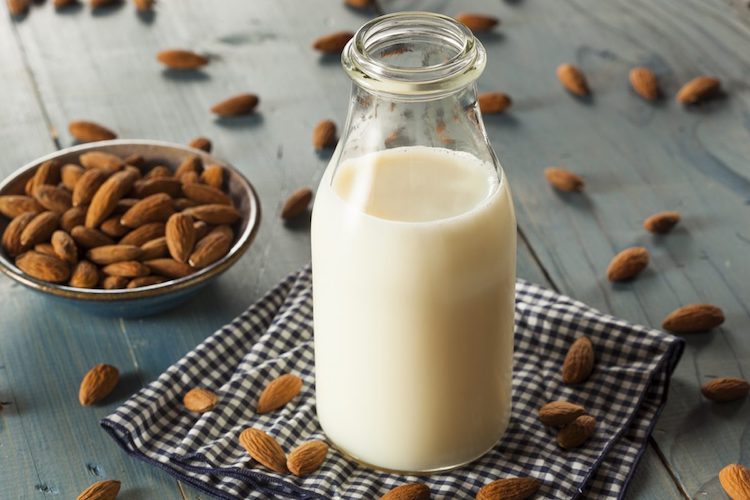- Home
- The Parenting
- New Health Guidelines Suggest Young Children Should Not Drink Plant-Based Milk

New Health Guidelines Suggest Young Children Should Not Drink Plant-Based Milk
New health guidelines released Wednesday suggest that children under 5 years of age should not drink plant-based milk. Plant-based milks include oats, coconuts and rice. These blends lack key nutrients that are vital for development.
It was also suggested that kids under 5 avoid diet drinks, flavored milk, sugary drinks and juice. These recommendations come from a panel of experts with the Academy of Nutrition and Dietetics, the American Academy of Pediatric Dentistry, the American Academy of Pediatrics and the American Heart Association. Plant-based milk alternatives have become all the rage in the last few years, which prompted this guideline update.
“In the last five to 10 years there has been an explosion of interest in plant-based milk. More and more parents are turning to them for a variety of reasons and there’s a misconception that they are equal somehow to cow or dairy milk, but that’s just not the case,” said Megan Lott, who helped develop the recommendations as the deputy director of the Healthy Eating Research.
Children require key nutrients like Vitamin D and calcium, which most plant-based milks do not have enough of. Of course, there are special occasions where plant-based milk is necessary.
“The guidelines do make an exception if a child has a dairy or cow milk allergy or is lactose intolerant or has religious rules or lives in a house that keeps a vegan diet, in that case, the parents should definitely consult with their pediatrician or dietitian,” Lott said.
It is all about knowing what works best for your child’s special circumstances.
“What works for my son may not be the same for another young child, it’s based on individual needs and why we talk about the need for parents to talk to the child’s pediatrician or dietician about it,” Lott said.
The new guidelines also advise that young children avoid zero-calorie and low-calorie drinks.
“We are finding more and more of these artificial sweeteners showing up in food marketed to young children and there is no research on these substitutes that show they cause harm, but there’s really no research showing that they are safe,” said Lott.
When children are in stages of development, it is important to be vigilant.
Flavored milks were also on this list to avoid by the committee. They explained that drinking milks flavored with chocolate or strawberry flavorings can create bad health and taste habits early in life.
The guidelines suggest avoiding sugar-sweetened beverages and caffeinated beverages, like soda and juice as well. It is recommended that children under 1-year old drink no juice at all. For age 1 to 3, no more than half a cup a day, and for children who are 4 and 5, no more than half-cup to 3/4 a cup a day.
So, what should you have your children drink? These experts say that babies need only breast milk or infant formula and once they are 6 months old, small amounts of water. Children should stick to milk, water and occasionally juice.
Kids between the age of 1 and 2 years old drink two to three cups of whole milk a day. At age 2 and 3 they should drink no more than two cups of skim or low-fat milk a day. For age 4 and 5 they should drink no more than two and a half cups of skim or low-fat milk a day.
For water, it’s a half-cup to a cup for 6- to 12-month-old children, one to four cups a day for ages 1 to 3, and one and a half to five cups a day for 4- and 5-year-olds.
“When some parents walk into a grocery store they may be overwhelmed by the options, but in daily life, the key message is, what we recommend is doable, even if it does take some persistence and cooperation,” Lott said. “There are lots of opportunities to make great improvements in a child’s nutrition for parents here.”
